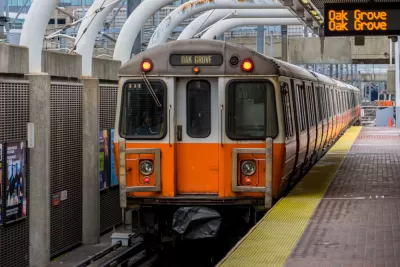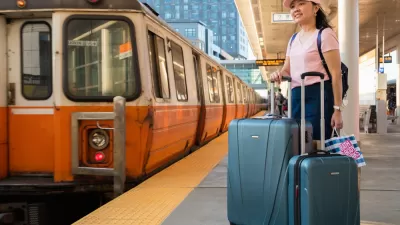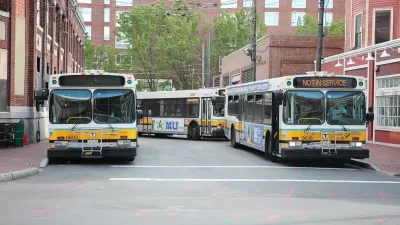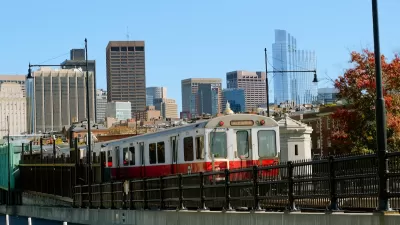The Federal Transit Administration issued a scathing review of the Massachusetts Bay Transportation Authority’s performance last week, ordering major changes at the Boston area’s transportation agency.

“The Federal Transit Administration has ordered the troubled [Massachusetts Bay Transportation Authority] to address 53 problem areas ranging from staffing and safety management to communications and operating policies, and called for an overhaul of safety culture inside the T,” report Laura Kraegel and Beth Healy for WBUR.
The FTA published a 90-page “Safety Management Inspection” [pdf] report on August 31, followed by a series of special directives that require the MBTA to “address personnel, deficiencies and inadequate operating conditions, policies, procedures and training that compromised a culture of safety at the agency,” according to an FTA press release.
“[T]he FTA said its investigation found that the MBTA had starved its operating budget by moving $500 million into its capital budget this year, putting stress on staffing and safety,” report Kraegel and Healy. “The FTA ordered the T, its board and the state's Department of Public Utilities to collaborate to prioritize safety for riders and employees.”
“The FTA stopped short of assuming safety oversight of the T — as it did with the Washington D.C. transit system in 2015 — but indicated it would remain involved in ensuring the directives are resolved,” adds the article.
More details on the FTA’s report, the special directives, and the recent history of transit in Boston are included in the source article linked below. The MBTA’s entire Orange Line and parts of the Green Line are currently closed.
FULL STORY: MBTA's long-term projects jeopardized daily operations and safety, federal report says

Manufactured Crisis: Losing the Nation’s Largest Source of Unsubsidized Affordable Housing
Manufactured housing communities have long been an affordable housing option for millions of people living in the U.S., but that affordability is disappearing rapidly. How did we get here?

Americans May Be Stuck — But Why?
Americans are moving a lot less than they once did, and that is a problem. While Yoni Applebaum, in his highly-publicized article Stuck, gets the reasons badly wrong, it's still important to ask: why are we moving so much less than before?

Research Shows More Roads = More Driving
A national study shows, once again, that increasing road supply induces additional vehicle travel, particularly over the long run.

How Protecting Kauaʻi’s Forests Safeguards Fresh Water
A University of Hawaiʻi study shows that protecting Kauaʻi’s native forests from invasive species significantly boosts groundwater recharge, making it a cost-effective strategy to secure fresh water and enhance climate resilience.

Gary, Indiana to Expand Transit Service, Bike Share
The city plans to launch a bike share system in April and expand service on its bus routes.

Pittsburgh Rolls Out Electric School Buses
Pittsburgh Public Schools has launched its first electric school buses, with plans to fully electrify its fleet over the next 14 months, aiming to create a cleaner, more sustainable transportation system supported by new charging infrastructure.
Urban Design for Planners 1: Software Tools
This six-course series explores essential urban design concepts using open source software and equips planners with the tools they need to participate fully in the urban design process.
Planning for Universal Design
Learn the tools for implementing Universal Design in planning regulations.
City of Moreno Valley
Institute for Housing and Urban Development Studies (IHS)
City of Grandview
Harvard GSD Executive Education
NYU Wagner Graduate School of Public Service
City of Cambridge, Maryland
Newport County Development Council: Connect Greater Newport





























